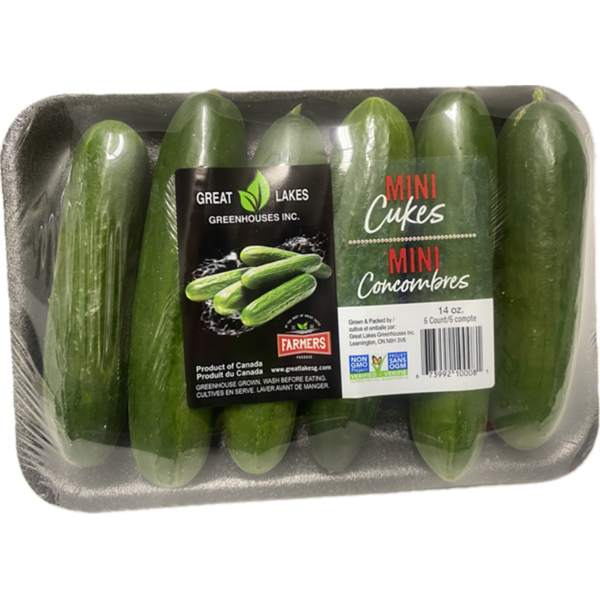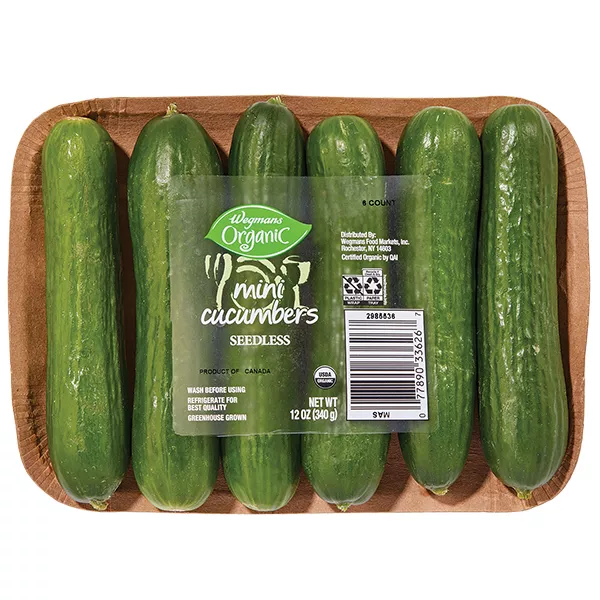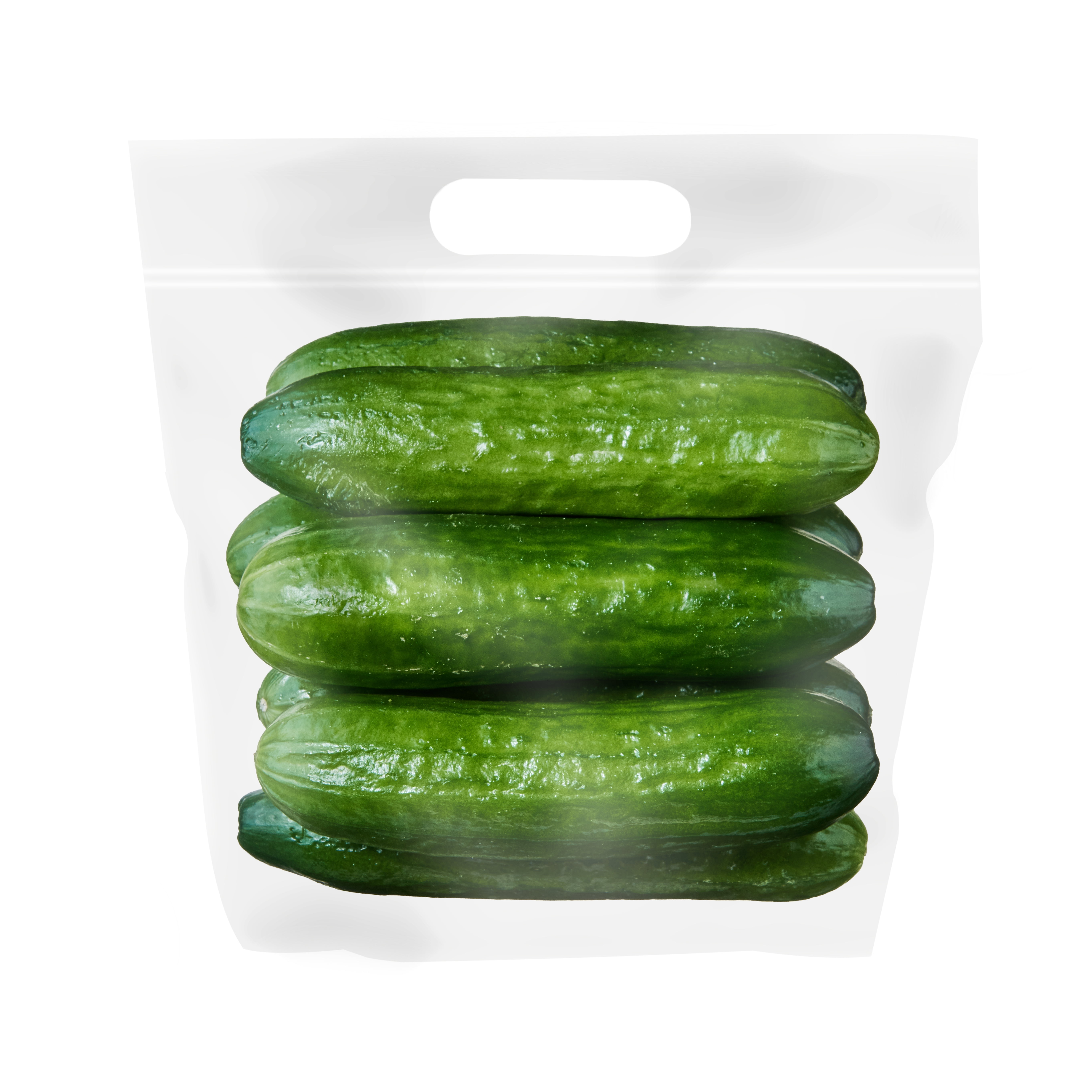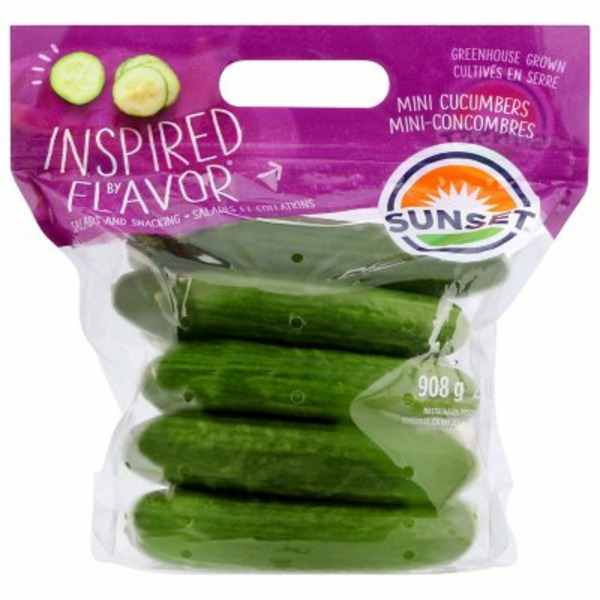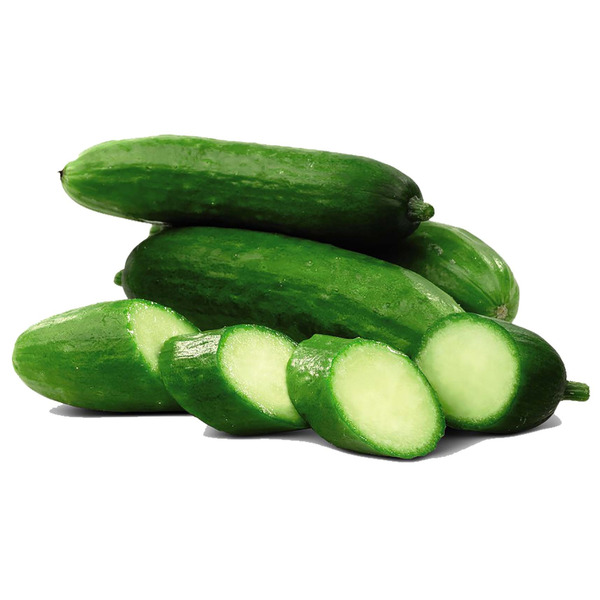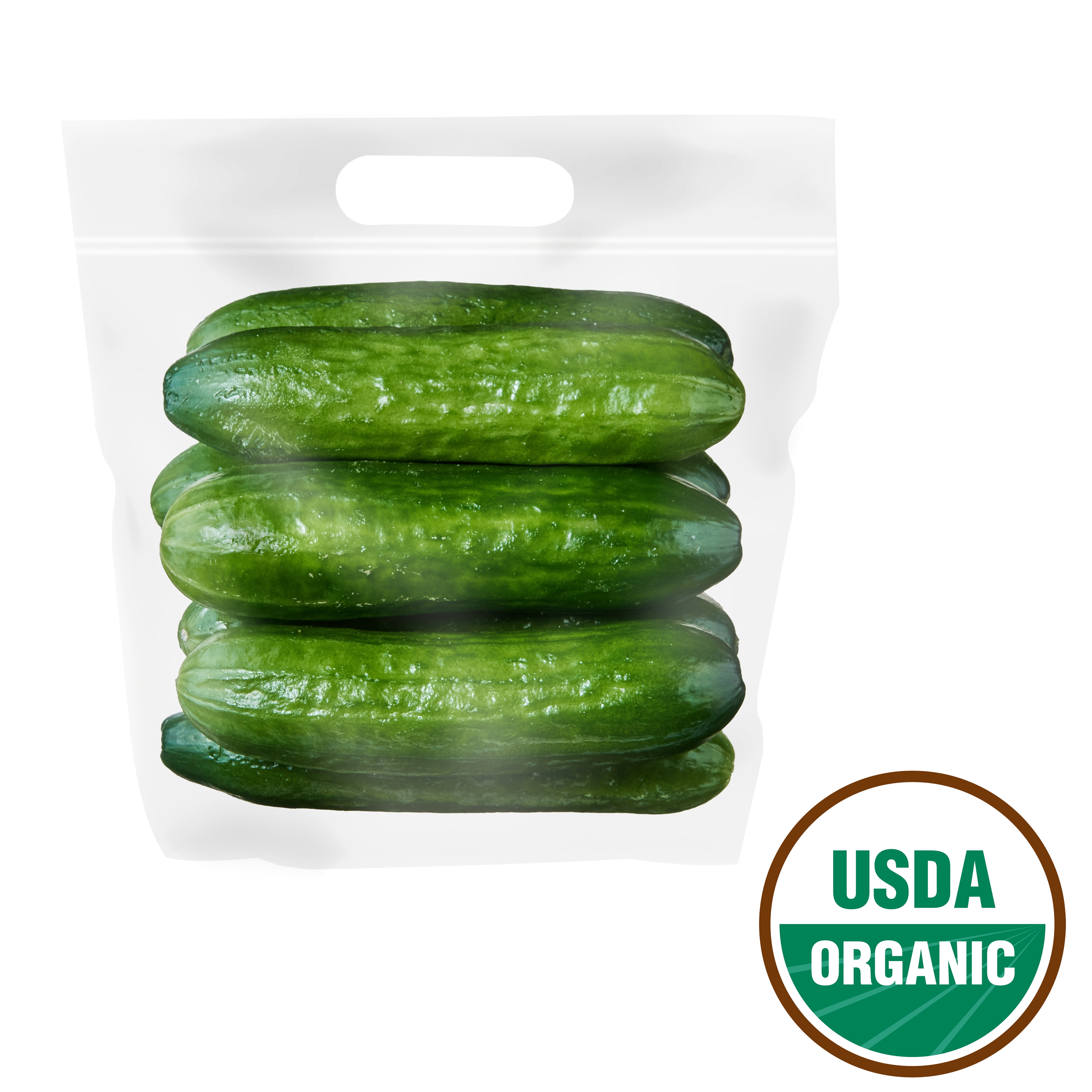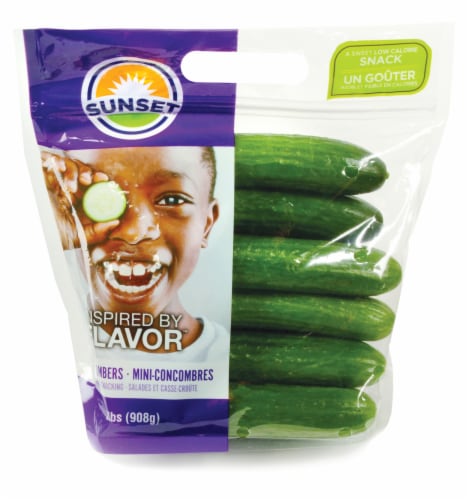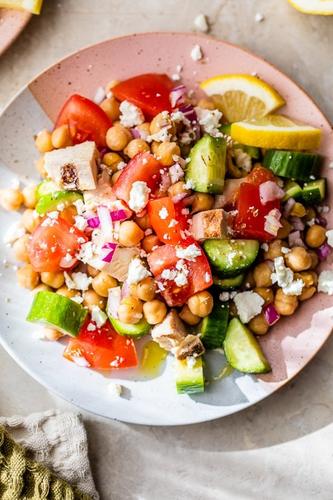SALADS
APPETIZERS
SNACKS
Mini Cucumbers
Pickling cucumbers, sometimes called Kirby cucumbers, are a particular variety of cucumbers best suited for making pickles. Smaller in size and featuring a thicker, bumpier skin than the common slicing cucumber, its dense and crunchy flesh has fewer seeds, ensuring a better texture and flavor after the pickling process. These cucumbers are ideal for home preserving, as they retain their crispness and hold up well when stored in a pickling solution.
These cucumbers can be harvested when they reach between 3 to 5 inches in length, allowing for a range of pickle sizes. They are commonly used in various pickling methods such as dill pickles, Kosher pickles, and bread and butter pickles. Home cooks and consumers enjoy their delectable, tangy taste in a variety of culinary applications, making pickling cucumbers a staple ingredient in many pantries everywhere.
74%
CARBS
5%
FAT
20%
PROTEIN
797 Mini Cucumbers Products
Wegmans Mini Seedless Cucumbers, Family Pack
Wegmans Organic Mini Seedless Cucumbers
Fresh Mini Cucumbers
Mini Cucumbers
Mini Cucumbers, Package
Mini Cucumbers
Fresh Organic Mini Cucumbers, 1 Pound Bag
H-E-B Organics Fresh Mini Seedless Cucumbers
Sunset Mini Cucumbers
H-E-B Select Ingredients Mini Seedless Cucumbers
Used In 21 Recipes
6
Summer Harvest Tomato & Cucumber Salad
4
Steak and Avocado Salad with Honey-Balsamic Dressing
4
Savory Baked Greek Kofta Kebabs with Creamy Tzatziki
2
Sensational Salmon Sushi Bowl
3
Cucumber and Tomato Salad with Red Onions
13
Grilled Chicken Feta Chickpea Salad
1
Avocado Cucumber Salad with Sirloin Steak Tips
6
Nori Wraps with Canned Tuna
Mini Cucumbers Are Frequently Used With
Mini Cucumbers FAQ
One of the most common questions when cooking with pickling cucumbers is how important the size of the cucumber is. People often go wrong by choosing cucumbers that are too ripe, which results in a mushy pickle instead of the desired crunchy one. The size and freshness of the cucumber are essential; smaller, fresher cucumbers produce the crispiest pickles. To add flavor, you can also fresh dill, garlic, or spicy peppers into the jars with your cucumbers. A pro tip is to remove the blossom end of the cucumber (the opposite end from the stem), as it contains enzymes that can soften the pickles and reduce their crunchiness.
Another common mistake is not using the right amount of vinegar and water. The mix should be acidic enough to prevent bacterial growth but not too acidic that it overpowers the flavor of the pickles. It's a delicate balance, and the ratio varies depending on the kind of pickle you're making. On the lighter side, a ratio of 1:1 (vinegar:water) is typically safe.
To get the most out of your pickling cucumbers, use them fresh from the market. If you can't use them right away, keep them in the refrigerator until you're ready to start the pickling process. Also, be sure to thoroughly clean them to remove any dirt or grit before pickling.
What's the difference between pickling cucumbers and regular cucumbers?
Why are my homemade pickles mushy?
Can I use pickling cucumbers for anything other than pickles?
How many pickling cucumbers does it take to make a jar of pickles?
Why are my pickles not sour?
Can I make pickles without using sugar?
What kind of vinegar is best for pickling cucumbers?
Can I make pickles without boiling the jars?
How do I make my pickles crispy?
Can I reuse the pickling brine solution?
Expiration & Storage Tips
When does pickling cucumbers expire?
Unopened, a jar of pickles can last anywhere from 1 to 2 years past the 'use by' date printed on the jar. Once opened, however, it starts a different timeline: an opened jar should be refrigerated and can last up to a year. If you are making homemade pickled cucumbers, they can be safely stored in the refrigerator for about 1 month, or several months if canned properly. Freezing is not recommended as it can change the texture of the pickles.
How do you tell if pickling cucumbers is bad?
When your pickles are bad, common signs include a cloudy or discolored liquid or an off smell once the jar is opened. Additionally, if the pickles seem mushy or softened, it's an indication that they're starting to spoil. Most crucially, if you see formation of mold, it's a sure sign that the pickles are no longer safe to consume.
Tips for storing pickling cucumbers to extend shelf life
• Always store your unopened jars of pickles in a cool, dark place like the pantry.
• Once the jar is opened, always store it in the refrigerator to keep the pickles in good condition.
• After each use, ensure the jar is sealed properly before putting it back in the fridge.
• Homemade pickles should be stored in sterile, airtight containers in the refrigerator.
• While you’re at it, always use a clean utensil when taking pickles out of the jar. This prevents introducing bacteria which could spoil the pickles.
• Making pickles in smaller batches will ensure they all get eaten before they potentially go bad.
EXPIRES WITHIN
11 - 21
DAYS
Substitutes
Health Info
Macros
2g
CARBS
0g
FAT
0g
PROTEIN
Allowed on these diets
LOW FAT
HIGH CALCIUM
VEGETARIAN
KETO
PALEO
WHOLE 30
MEDITERRANEAN
LOW CARB
VEGAN
LACTOSE FREE
GLUTEN FREE

